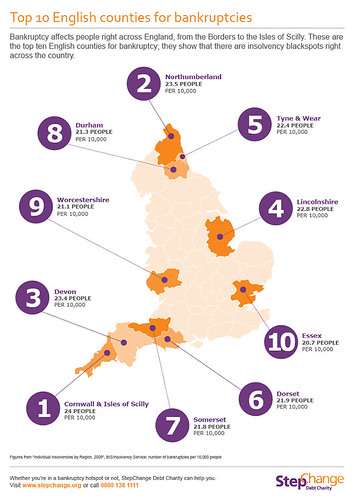Although going through bankruptcy can be very hard, deciding to file for bankruptcy is hard. Going into this ordeal is easier when you are armed with lots of solid advice. Read the below article for excellent advice from those who have personally went through bankruptcy themselves.
If you’re in this situation, it makes sense to become familiar with relevant laws. Different states use different laws regarding bankruptcy. For instance, in some states you can keep your home and car, but not in others. You should be familiar with the laws before filing for bankruptcy.
Be certain you understand all you can about bankruptcy by using online resources.Department of Justice and National Association for Consumer Bankruptcy Institute are two such places to look.
You can find services like counseling for credit counselling services. Bankruptcy is a permanent part of your credit, so before you take such a large step, to help try and limit the damage to your credit.
You should not use your retirement savings unless the situation calls for worse times. Although it is quite normal to use some of your savings, you should not use up all of it right now and jeopardize the financial security of your future.
Instead of getting your lawyer from the yellow pages or on the Internet, ask around and get personal recommendations. There are a number of companies who may take advantage of your situation, so you must ascertain that your attorney can be trusted.
Filing for personal bankruptcy may possibly enable you to reclaim your personal property that have been repossessed, including cards, electronics and jewelry items. You may be able to get your possessions back if they have been taken away from you within 90 days ago. Speak to a lawyer that will provide you with guidance for the necessary paperwork.
Understand the differences between Chapter 7 and a Chapter 13 bankruptcy. Take the time to learn about them extensively, and look at the advantages and disadvantages of each.If something doesn’t make sense to you, go over it again with your attorney before making the final filing decision.
Before filing bankruptcy ensure that the need is there. You might be better off consolidating your debt may be simpler.It is not a quick and easy process of filing for bankruptcy. It will have a major effect on your credit in years to come. This is why you explore your other debt relief options first.
Don’t file bankruptcy if you can afford to pay your bills. Bankruptcy might seem like a good way to get out of paying your bills, but it is a huge mark on your credit score and remains there for up to 10 years.
Look at all of your options before filing. Loan modification can be helpful for those facing foreclosure. The lender wants their money, so they may be willing to forgive some fees, and in some cases will allow you to pay the loan over a longer period of time. When push comes to shove, the creditors want their money, and they are willing to make concessions to get it and prevent the debtor from declaring bankruptcy.
That stress can lead to depression, if you do not take the necessary steps to fight it. Life will get better after you finish this process.
Nobody wishes to file for bankruptcy, but there are cases where it is simply necessary. Now that you’ve come to the end of this piece, you have some ideas about how the process works. You can take comfort in the fact that others have been in this situation before you, so take heed from their experiences to help you deal with your own.
